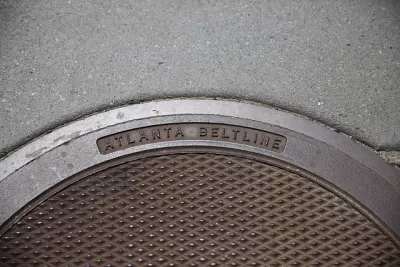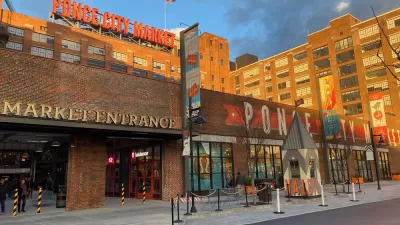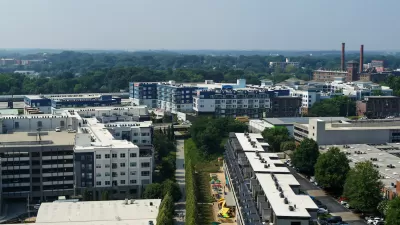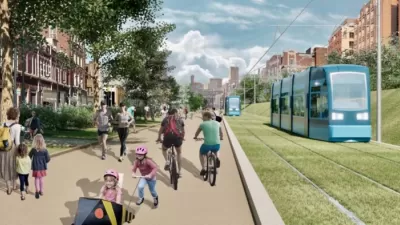The BeltLine Special Services District, first proposed in January 2021, already has a green light from the Atlanta City Council.

Josh Green reports: "Despite opposition from an alliance of metro Atlanta apartment complex owners, purveyors of dive bars, government leaders, and various other groups, an additional tax for commercial property owners near the BeltLine is coming this year."
The Atlanta City Council on Monday moved forward with the BeltLine Special Services District (SSD): "a half-mile zone around the 22-mile loop where a tax bump will be implemented to raise an expected $100 million for finishing BeltLine construction."
The SSD is a relatively new idea for generating the funding necessary to get the BeltLine across the finish line. Planetizen covered the idea shortly after its first announcement in January 2021.
The SSD is expected to generate $100 million to complete BeltLine trail corridors, but it only go part way to funding the remainder of the work. "Finishing everything from design work and utility relocation to the installation of security cameras is expected to cost roughly $350 million," according to Green.
The BeltLine Tax Allocation District (TAD) is still in place, with a December 2030 expiration date. "Beyond the SSD’s $100-million boost, the BeltLine says $100 million will come from the existing TAD, with local, state, federal, and especially philanthropic sources—who haven’t been publicly identified yet—footing the remaining $150 million," reports Green.
More on the politics of the City Council's decision, and the potential benefit of the new revenue, are included in the source article.
FULL STORY: The Atlanta BeltLine's new tax is official. Now what?

Alabama: Trump Terminates Settlements for Black Communities Harmed By Raw Sewage
Trump deemed the landmark civil rights agreement “illegal DEI and environmental justice policy.”

Planetizen Federal Action Tracker
A weekly monitor of how Trump’s orders and actions are impacting planners and planning in America.

The 120 Year Old Tiny Home Villages That Sheltered San Francisco’s Earthquake Refugees
More than a century ago, San Francisco mobilized to house thousands of residents displaced by the 1906 earthquake. Could their strategy offer a model for the present?

In Both Crashes and Crime, Public Transportation is Far Safer than Driving
Contrary to popular assumptions, public transportation has far lower crash and crime rates than automobile travel. For safer communities, improve and encourage transit travel.

Report: Zoning Reforms Should Complement Nashville’s Ambitious Transit Plan
Without reform, restrictive zoning codes will limit the impact of the city’s planned transit expansion and could exclude some of the residents who depend on transit the most.

Judge Orders Release of Frozen IRA, IIJA Funding
The decision is a victory for environmental groups who charged that freezing funds for critical infrastructure and disaster response programs caused “real and irreparable harm” to communities.
Urban Design for Planners 1: Software Tools
This six-course series explores essential urban design concepts using open source software and equips planners with the tools they need to participate fully in the urban design process.
Planning for Universal Design
Learn the tools for implementing Universal Design in planning regulations.
Clanton & Associates, Inc.
Jessamine County Fiscal Court
Institute for Housing and Urban Development Studies (IHS)
City of Grandview
Harvard GSD Executive Education
Toledo-Lucas County Plan Commissions
Salt Lake City
NYU Wagner Graduate School of Public Service





























